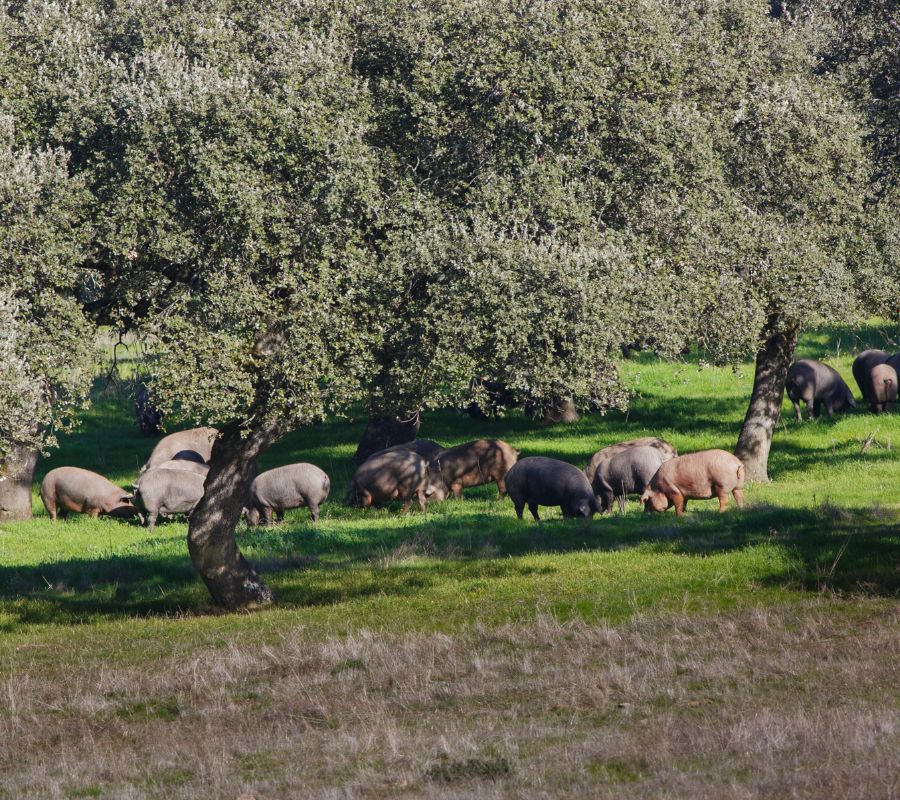
This sector is fully committed to the environment but also to the social and economic development of the rural areas of Spain. For many years, a wide range of initiatives that demonstrate its strong environmental dedication and enhance its vital role as a social and economic pillar in rural communities have been implemented.

CARBON FOOTPRINT
– The Dehesa as a CO2 natural sink.
– Commitment to natural feeds and local cereal crops.
– Reduction of the emission of greenhouse gases.
– Minimization of the Carbon Footprint plans such as the replacement of outdated equipment with more efficient alternatives, the reduction of electricity consumption, the regulation of cleaning water temperatures.
WATER FOOTPRINT
– Sustainable water management.
– Optimization of water consumption. The reduction of the water use up to a 30% in the latest years.
– Mandatory construction of fenced and impermeable reservoirs to prevent the risk of filtration and contamination of both surface and groundwater.


RENEWABLE ENERGY
– Commitment to the use of renewable energy sources.
– Reduction of energy consumption.
WASTE MANAGEMENT
– Waste management plans for used packaging.
– Reducing single-use plastics. Eco-friendly packaging solutions.
SOCIAL SUSTAINABILITY
– Economic engine in the rural areas of Spain,generating vitality even in the most disadvantaged areas.
– Main support in rural communities, with the Ibérico sector serving as an antidote to Europe’s Demographic Challenge.
– Creates wealth and jobs, ensuring the future of local communities by helping to retain residents in areas at risk of depopulation.
– Equal gender opportunities, aiming to achieve 50% female employment
– Fosters employment in related sectors, drives significant research and development activities, and contributes to the scientific and technological advancement of our country
– Commits to sourcing from local or nearby suppliers (auxiliary industries, feed, professional services, etc).


ECONOMIC SUSTAINABILITY
– Reinforces the Circular Economy across the entire chain based on the principle of Reduce – Reuse – Recycle.
– Emphasizes Corporate Social Responsibility.
– Ensures fair economic returns throughout the food chain.
